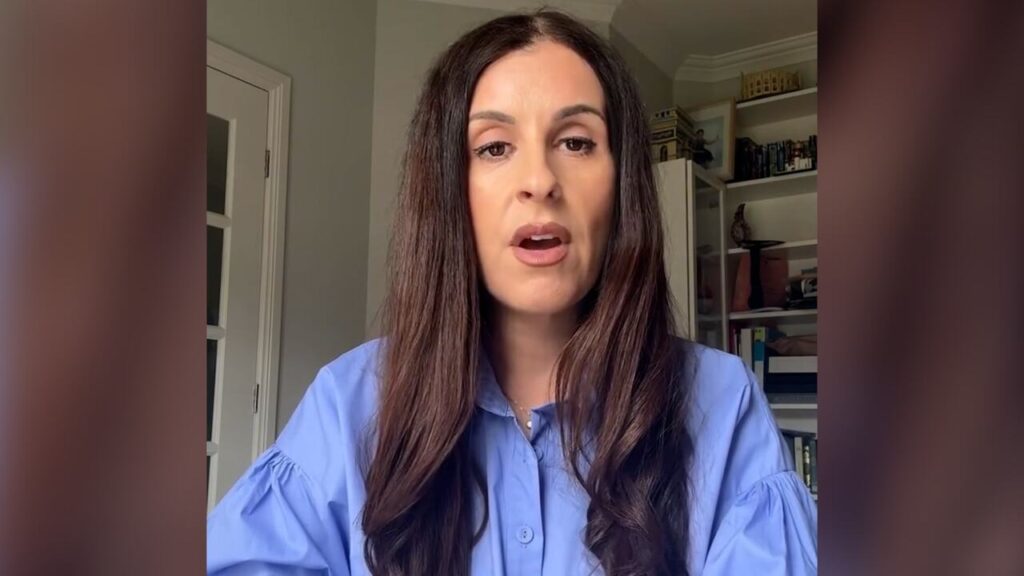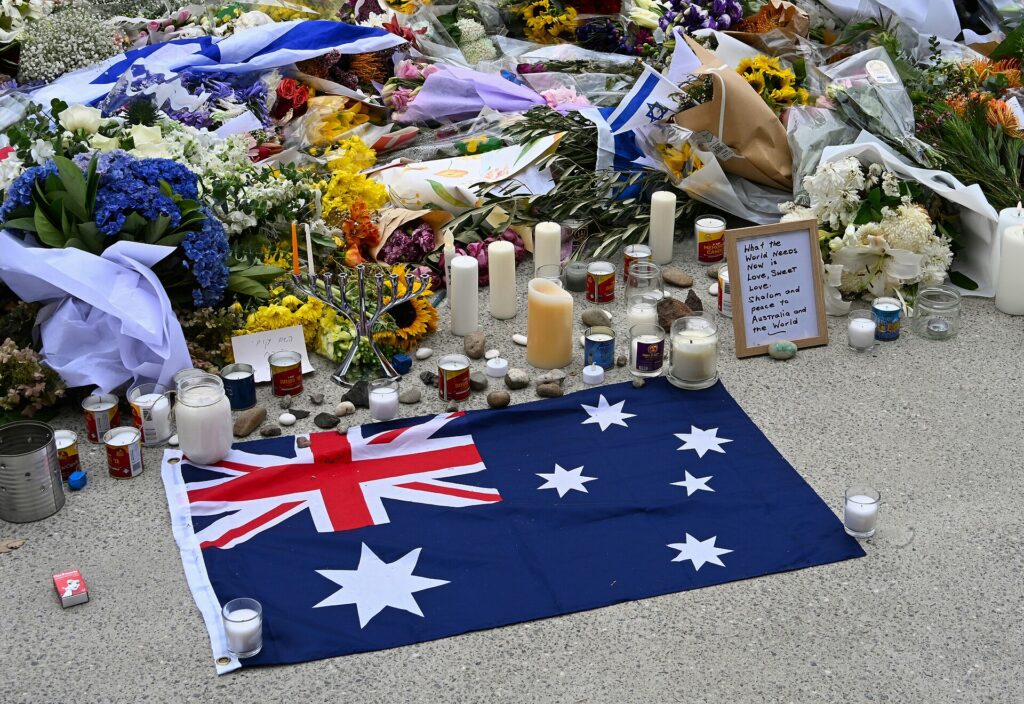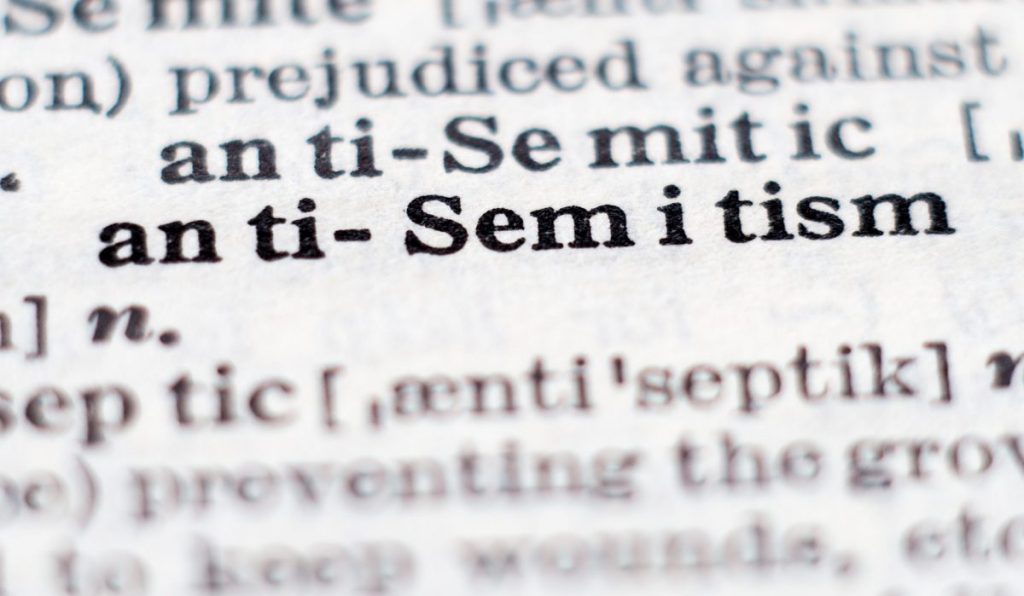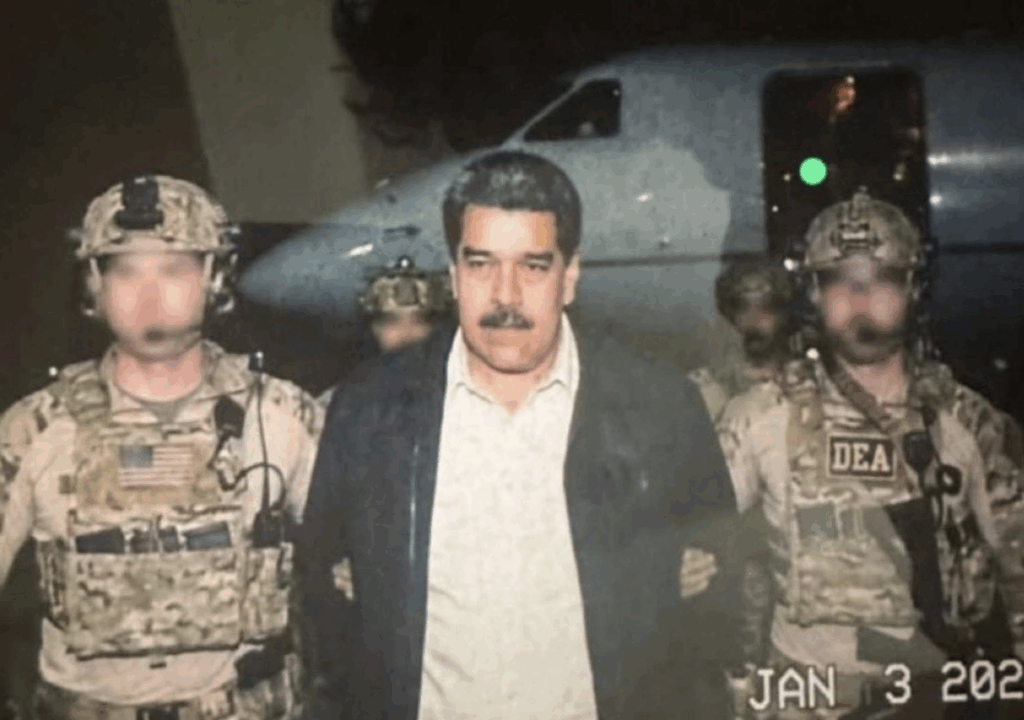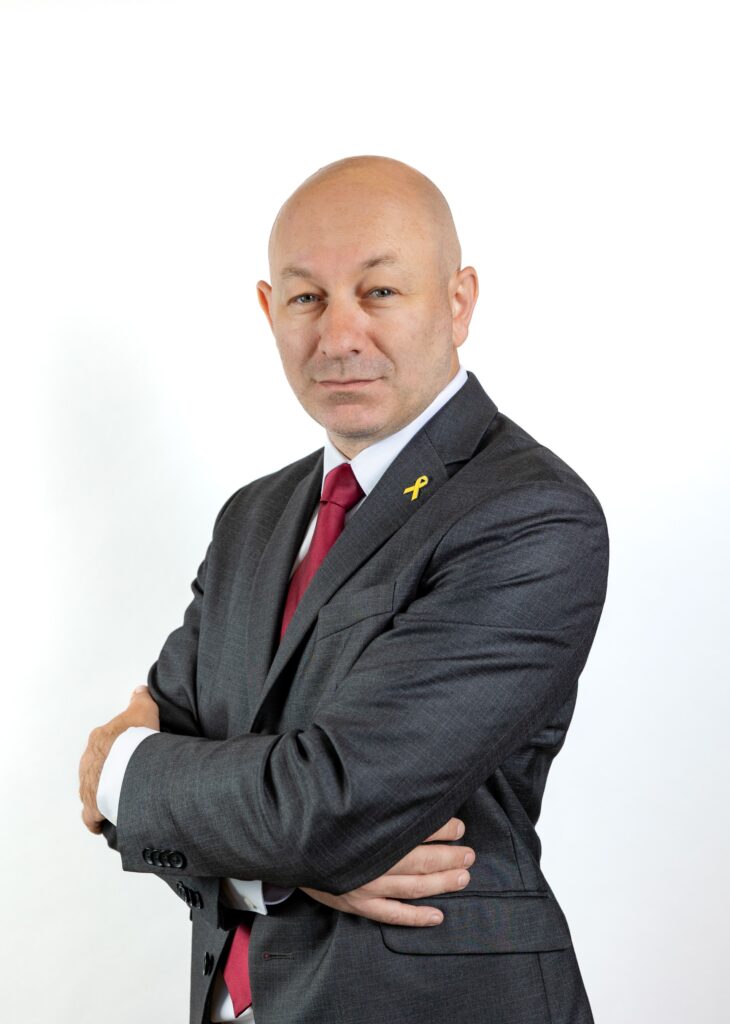UPDATES
Conspiracy Theories and the Arab Spring
February 17, 2012
Update from AIJAC
February 17, 2011
Number 02/12 #05
This Update focuses on the growing prevalence of conspiracy theories that seem to be coming out of countries affected by the Arab Spring, especially Egypt, and the possible consequences.
First up is Washington Institute scholar David Schenker, who looks at the background to the Egyptian decision to prosecute 16 US citizens who lead NGOs in Egypt for accepting foreign funding to promote democracy. This decision risks the loss of $1.3 billion in annual aid from the US which Egypt desperately needs in order to import food for its citizens, but Egyptians overwhelmingly want this aid to end anyway. Schenker discusses how minister of planning and international cooperation, Fayza Mohamed Aboulnaga, who is pushing these prosecutions, is joining the Muslim Brotherhood and Salafists in promoting the anti-American conspiracy theories which are already highly popular with the general population, and this is likely to continue for the forseeable future. For Schenker’s full discussion, CLICK HERE. More on the efforts of and beliefs of Aboulnaga is here; more on that poll showing Egyptians do not want US aid, even though they need it, is here; additional reporting on widespread accusations in Egyptian state media that the US is behind the violence and unrest is here.
Next up, academic Barry Rubin notes that it is not simply the Islamists who are promoting conspiracy theories – even the supposedly liberal, moderate Wafd party is doing so. He documents how the Wafd has a deputy leader who says that “September 11 was a US-Zionist plot; the Holocaust never happened; and Anne Frank was a phony” and even more worryingly, the Wafd paper just published an article claiming a small US Naval Medical Research Unit in Cairo, looking at tropical diseases, is actually creating biological weapons to “exterminate the entire Egyptian nation.” He goes on to explore the implications of the reality of a society in which even “moderates” believes such things. For his complete argument, CLICK HERE. Barry Rubin also had recent posts debunking claims the Egyptian Muslim Brotherhood has moderated and another on the incompatibility with democracy of the mindset of the Islamists.
Finally, David Bratslavsky, an American foreign policy expert, argues that the policy of the US State Department and other Foreign Ministries of ignoring promotion of such conspiracy theories is mistaken. In fact, he argues that the promotion of such material by governments amounts to “a defining factor of America’s relationship with the region” which it is very much in the interests of Washington and its allies to counter. He notes that “People do not act on reality. They act on their perceptions of reality” and foreign policy includes countering attempts to shape those perceptions in a destructive way. For all that Bratslavsky has to say, CLICK HERE.
Readers may also be interested in:
- American pundit David Goldman comments on a reported request from Egypt that the international community give them $11 billlion – just at the time they are prosecuting foreign NGOs.
- Two additional pieces on policy options for helping the Syrian opposition, from Jeffrey White of the Washington Institute and American Arab affairs specialist Ammar Abdulhamid .
- Two good pieces on Israel’s limited policy option vis-a-vis the situation in Syria – from noted Arab Affairs journalist Ehud Yaari and academic expert Moshe Maoz.
- A report Iran is increasing its presence in Syria.
- Three good pieces on the political division within Hamas concerning the deal with Fatah – here, here and here.
- The implications of the landslide win for Islamists in elections in Kuwait.
-
Foreign policy expert Walter Russell Mead discusses a story that Osama bin Laden told his children to abandon Jihad and get a Western education.
- Marty Peretz on the “Failure of the Arab Spring.” Plus, two different views on Israel and the Arab Spring, here and here.
- Noted Dutch-Somali Muslim dissident Ayaan Hirsi Ali on the need to banish wishful thinking about Islamism.
- Some examples from the many stories and comments now appearing at AIJAC’s daily “Fresh AIR” blog:
- A post on the political storm over Israel in Malaysia.
- A blog post on Islamism, conspiracy theories and the coup in the Maldives.
- A post on Russia’s efforts to convince the world that nothing much is happening in Syria.
Egypt’s Cold Shoulder
By David Schenker
Los Angeles Times, February 15, 2012
A sudden new wave of anti-Americanism is thriving in Cairo.
As 16 U.S. citizens await trial in Egypt for accepting foreign financing to promote democracy, for the first time in more than 30 years there is a serious debate in Washington about whether to end the $1.3-billion annual military assistance to Cairo. There’s no debate in Egypt, however. More than 70% of Egyptians, according to a recent Gallup poll, no longer want U.S. funding.
By deciding to prosecute Americans, post-Mubarak Egypt has intentionally provoked a bilateral crisis. But the legal assault on U.S.-funded nongovernmental organizations and personnel is merely a symptom of a larger, more serious problem. In Egypt today, all major political forces — the ruling Supreme Council of the Armed Forces, or SCAF, the Muslim Brotherhood and the government — are embracing anti-American populism.
The new atmosphere in Egypt leaves the Obama administration — and Congress — with some stark choices. Washington can employ the nuclear option — cut the assistance and test the durability of the U.S.-underwritten 1979 Egyptian-Israeli peace treaty — or continue to fund an increasingly hostile and unstable state in hopes that democracy will take root.
In this environment, prospects for democracy in Egypt appear slim. Worse, with reportedly as little as $11 billion remaining in foreign reserves depleting at a rate of $2 billion a month, Egypt is on the precipice of an economic crisis. At the same time, a spate of kidnappings in Cairo and mob violence at a Port Said soccer match this month, which killed more than 70 people, point to a deteriorating security situation.
But instead of concentrating on security and economics, in a classic case of Nero fiddling while Rome burns, the civilian government appointed by SCAF is focused on trying the American staff of U.S.-funded NGOs that promote democracy. The allegations against them are a politically driven and incendiary distraction, unmistakably conceived by the SCAF-appointed minister of planning and international cooperation, Fayza Mohamed Aboulnaga, who has emerged as a symbol of the new populist politics of post-revolution Egypt.
Aboulnaga has been in charge of Egypt’s NGO file for decades and has been butting heads with U.S. officials for years. WikiLeaks cables from Cairo abound with diplomats’ laments over her ability to “fend off” U.S. efforts to promote “even minor reforms” in Egypt. This stance toward Washington seems to have held her in good stead: Aboulnaga is practically the only one among her senior colleagues from the Mubarak era to have survived the transition.
She has consolidated her position by promoting crass conspiracy theories, suggesting a U.S. role in the current instability plaguing Egypt. In her public testimony this year before the Ministry of Justice committee investigating foreign funding of NGOs, Aboulnaga claimed U.S. government-funded democracy-promoting organizations operating in Egypt were engaged in subversive activities. “The funds that entered Egypt recently amount to $200 million to fund unknown activities,” she said, “raising doubts and fears of these funds’ use in acts of sabotage.”
After 30 years and $66 billion in U.S. funding later, these claims of U.S. subversion are insulting. Meanwhile, Aboulnaga says she’s wearing the case like a “medal on my chest.” Clearly she sees utility in continuing her populist America-baiting, blaming “foreign hands” for Egypt’s problems.
So do the Islamists.
This month, for example, a senior Muslim Brotherhood official published an open letter invoking the “American-Zionist” conspiracy and warning that U.S. democratization funds had been channeled to “suspicious institutions.” Going one step further, the Brotherhood’s more militant cousin, the Salafist party Al Nour, accused the American NGOs of trying to “create discord between the Muslim Brotherhood and the Salafis.” Based on the court documents, one Al Nour official observed, the NGO workers “can be considered spies.”
Despite the prevalent view that the United States — in league with Israel — is a pernicious and destabilizing force in Egypt, Muslim Brotherhood leaders still say American dollars should continue to flow. As Khairat al Shater, a senior official in the Muslim Brotherhood, told the Washington Post, U.S. support to Egypt serves as “compensation for the many years [the U.S.] supported a brutal dictatorship.” More ominous, Shater has warned that a cutoff in aid might result in Egypt changing the terms of its peace treaty with Israel.
Shater is pragmatic. Because of the economic situation, Egypt cannot afford to lose foreign funding. At the same time, though, the Brotherhood does not want to be out of step with its constituency. By staking out this position, Shater hopes to both antagonize Washington and keep the aid.
Whether the current xenophobia is ideologically based or cynical populism to distract from the deteriorating conditions at home makes little difference. Either way, there is little Washington can do at this point to change the bilateral dynamic. Indeed, even if Cairo reversed its ill-advised campaign against the American NGOs, funding would still remain in jeopardy.
The problem, alas, is not Egypt’s relentless attack against foreign and domestic liberal democratic organizations. No doubt, SCAF, the government and the Islamists have little need for pro-democracy NGOs, but the investigation of the NGOs is a symptom rather than the root of the bilateral crisis. Notwithstanding the parliamentary elections, Egypt today is dominated by a coalition of military authoritarians and aspiring theocrats that views Washington with great suspicion.
Facing extreme challenges at home and in need of distractions, anti-Americanism has become Cairo’s preferred populist recourse. Although a solution might be found for this particular controversy — with or without U.S. foreign assistance — this bilateral dynamic assures that the next crisis is not far off.
David Schenker is director of the Program on Arab Politics at The Washington Institute and the author, most recently, of Egypt’s Enduring Challenges: Shaping the Post-Mubarak Environment.
Back to Top
————————————————————————
When the moderates are radicals, you’re in trouble
By BARRY RUBIN
Jerusalem Post, 02/05/2012 22:57
The hopes for moderation and real democracy in Egypt is limited; neither the Islamists nor many alleged moderates are moderate.
Dear readers, I’d like to share a secret. Every day I read articles, or some form of writing, by people who claim to be experts on the Middle East. I have read them on land; I have read them at sea; I have read them in the air. And they will never surrender to reality.
Here are the two main causes of error:
• They think the Middle East is just like the West, so they can extrapolate from their own experience.
When someone would say, “If I were Yasser Arafat, I’d… ,” my response would be: stop right there. I must run out to the corner store and get a pack of cigarettes.
I have never smoked a cigarette. And I kept on running.
You are not Arafat or Khomeini or Saddam Hussein or whatever, and unless you have some understanding of how they actually think – and not your own Western idea of what they should think – there’s no sense in discussing it.
• They think the Middle East is just what they’d like it to be. Peace? Easy. They have a plan. My response: I’d love to hear your plan but I’m all booked up to hear Middle East peace plans for the next three years.
I’ll put you on the waiting list and get back to you.
By the same token, they sometimes lie to make things seem better. You can’t criticize the Palestinian Authority – or the Muslim Brotherhood, Hamas, Hezbollah, the Turkish regime, etc. – even by telling the truth about them, because that would damage the cause of “peace.” They don’t understand that not telling the truth is the best way to undermine any chance for peace, or any understanding of why there is no peace.
THE MIDDLE East is so strange in Western terms, so different, that unless you are really aware of those differences, please pick something else to be an expert on.
And that brings me to a case in point that I have before me right now.
The Wafd is a “liberal,” “moderate” Egyptian party, right? It is the biggest non-Islamist party in Egypt’s parliament with 7.6 percent (pretty pitiful, huh?) of the seats. So if you are a Western reporter, policymaker, or “expert” you would say that it is one of the great hopes – perhaps the greatest – for moderate, liberal Egyptian democracy, right? And the same people, of course, explain that revolutionary Islamism isn’t really a threat because they are really just all greedy people who’d rather have US aid than Allah.
But how many “liberal,” “moderate” parties have had:
• A deadly shoot-out between two factions over control of their headquarters?
• An alliance with the Muslim Brotherhood – which might be renewed
• A deputy leader who explains that September 11 was a US-Zionist plot; the Holocaust never happened; and Anne Frank was a phony?
• And now this article, courtesy of the party’s official newspaper, appearing on January 27, 2012.
Thanks to MEMRI for catching and translating it.
You can read the whole thing for yourself if you want, but briefly the article charges that a small US Navy Medical Research Unit in Cairo that conducts research on tropical and Third World diseases is in fact engaged in plotting to send: “Medicines, pesticides, food products and seeds [to Egypt], after these have been dangerously tampered with so as to harm the Egyptians’ health” and handling “biological weapons which, if deployed, could exterminate the entire Egyptian nation, or any other nation…. They can also manipulate these Egyptian genes, alter their traits, and deform them by means of American medicines or vaccines that are sold dirt cheap to the poor Egyptian people, along with crop seeds and food products….”
It goes on to suggest that various disease epidemics in Egypt were caused by the United States and charges that the US installation “sees the Egyptian children as an opportunity to test new medicines,” turning the country’s children into lab rats and causing increases “in infertility, mental retardation and disability among Egyptians born in recent years… as well as [instances of] impotence.”
And all this is done “in accordance with America’s will, which has Israel standing forcefully behind it” to develop biological weapons for Israel against Egypt.
This one article is a rich source of knowledge about Egypt and the Arabic-speaking world, not so much in terms of health issues but in terms of political and intellectual structures. Of course, there are the common conspiracy theories and the idea that the Zionists are everywhere, but that’s only the beginning of the issue. Don’t be fooled into thinking that conspiracy theories are silly, funny, archaic ideas that don’t mean anything precisely because they are inaccurate.
Here are some of the implications:
• An American attempt to help Egypt (while also shielding itself from disease) is portrayed as a harmful and aggressive activity
• The priority for the nation is to fight foreign conspiracies, not to fix domestic shortcomings
• Since internal problems are blamed on outsiders they are thus made impossible to solve. Science and modernity are viewed not as solutions but with suspicion, as attempts to destroy one’s own society through imperialist takeover, social transformation, and atheism (or Christianity imposed on Islam)
• If Americans are so evil then it makes sense for people to become terrorists and to slay or drive out the horrible villains. Isn’t it reasonable to slay Americans in revenge or in self-defense? Now important Egyptians are also claiming that US embassy officials are running over Egyptians with their cars (apparently US embassy vehicles were stolen by criminals).
Together these four symptoms block progress, inflame hatred and extremism and produce conflict.
This is a common pattern in the Middle East whether aimed against Israel, the United States, or the West in general.
And guess what? Except for the last sentence of the third aspect, these are also the talking points of hegemonic Western leftism. It’s all there: the West is evil and wants to dominate; underdevelopment is not the result of traditional society and thinking but Western threat and conspiracy; fighting the West from outside and weakening it from inside are justified.
So, in short, the Islamists are not “moderate,” and many of the alleged moderates are not moderate.
Hence, the hopes for moderation and real democracy is limited by the small numbers of those who hold them. We were told not so long ago that the young, social-media using kids who made Egypt’s revolution would dominate the country thereafter.
Question: What percentage of the vote in parliamentary elections did the young, social-media using kids who made Egypt’s revolution get? Answer: 1.3 percent.
The writer is director of the Global Research and International Affairs (GLORIA) and a featured columnist at Pajamas Media. His new book, Israel: An Introduction, will be published by Yale University Press in January.
Back to Top
————————————————————————
What the US State Department doesn’t know about Mossad trained sharks and imperialist puppeteers
David Bratslavsky
“Street Smart Politics” blog, jpost.com, Wednesday Feb 15, 2012
How should we react when AIDS, the swine flu, infertility, economic stagnation, natural disasters, revolutions, and a litany of other grievances are routinely blamed by Middle Eastern populations on the West—the United States and Israel in particular?
Because some of these accusations are so over the top—Mossad trained sharks—or we know them to be patently false—CIA behind the 9/11 attacks—Western analysts tend to dismiss such claims as the rantings of sadly misinformed oddballs.
Conspiracy theories are useful because they provide scapegoats through which disenfranchised societies and their rulers make sense of their predicament while crowding out inconvenient facts. Accusations of “foreign hands,” Zionist plots, or imperialist (i.e. American) designs are conjured regularly by academics, government higher-ups, and the wider population alike with conviction inversely proportional to the availability of evidence. In a recent Pew Research Center survey, more than two thirds in surveyed Muslim-majority countries denied Arab involvement in the 9/11 attacks.
Past history also plays a role. The Middle East has been subject to conspiracies in the past, such as the overthrow of Iranian President Mohammed Mosssadeq in 1953 or the 1956 Suez invasion by Britain, France, and Israel, which makes subsequent illusions seem more plausible.
Yes, America’s policy in the Middle East is sometimes counterproductive and has room for improvement. But there is no policy adjustment that will accommodate grievances that arise from the belief that Americans or Zionists are responsible for every major ill from 9/11 to revolutions to natural disasters.
The problem in glossing over the impact of these lies, half-truths, distortions, and incitement directed at the West, including from our ostensible allies, is that we miss a defining factor of America’s relationship with the region.
How should our foreign policy deal with this challenge?
At the very least, we must acknowledge that some of our allies in the Middle East spread, tolerate, nurture, or co-opt anti-Western conspiracy theories and allow incitement through state media, schools, mosques, and even official communiques (see memri.org) in order to redirect public anger, sow discord among state enemies, and justify repression as a means of defense against nefarious foreign plots—real or imagined.
We should assess our allies’ intentions by what they say publicly to their own people and not the niceties their diplomats convey behind closed doors. This means when Secretary of State Hillary Clinton meets with her Saudi counterpart, her assessment of the Saudi-American relationship will take into account what is preached in Saudi-sponsored mosques. It means that Palestinian President Mahmoud Abbas will not maintain the status of a peaceful moderate while he glorifies known terrorists. And so on.
This is not interference in domestic affairs. It is a critical component of our national interest to insist that our allies, who are so devoted to influencing their domestic public opinion, desist from enabling anti-American animus. And if we are serious about promoting the Arab-Israeli peace process, the same expectations must be applied to the anti-Semitism and denial of Israel’s legitimacy which is so common in this region.
People do not act on reality. They act on their perceptions of reality. While perceptions are influenced by much more than the efforts of regional governments, we will never win the battle for hearts and minds while our ostensible allies propagandize against us. We must insist otherwise to secure our foreign policy interests.
David Bratslavsky analyzes US foreign policy and the Middle East. He studied politics, language and religion in Washington, D.C., Tel Aviv, Cairo and Jerusalem and currently works for a political non-profit.
Tags: Egypt

